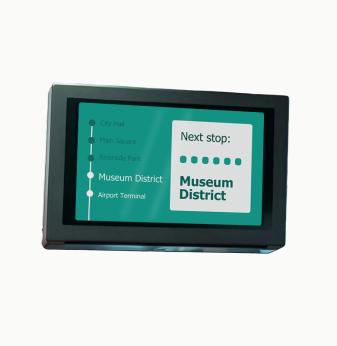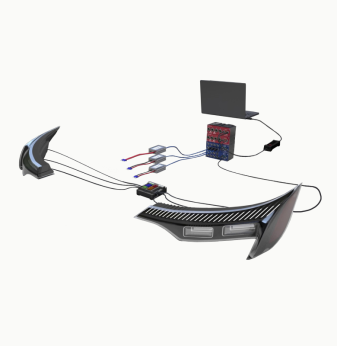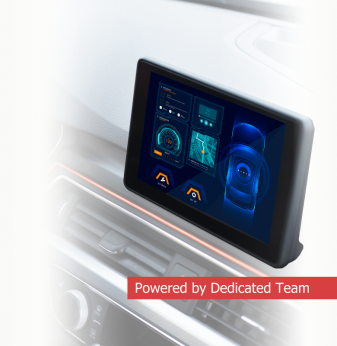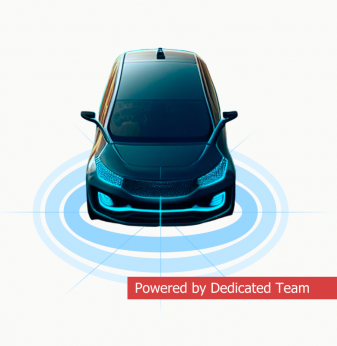The Future of Electric Trucks: How Embedded Systems Influence Management and Charging

The transition to electric vehicles (EVs) in commercial trucking is accelerating, powered significantly by advances in embedded systems. These intelligent solutions manage vehicle performance, optimize battery charging, and streamline fleet operations, reshaping the future of sustainable transportation.
Embedded Systems Defined
Embedded systems are integrated computing solutions embedded within electric trucks, handling real-time tasks including battery management, energy optimization, route planning, and predictive maintenance. These systems ensure electric trucks operate efficiently, safely, and sustainably.
Key Embedded Systems in Electric Trucks
- Battery Management Systems (BMS): Monitor and control battery performance, extending battery life, optimizing charging cycles, and ensuring operational safety.
- Vehicle Control Units (VCU): Act as the central hub for vehicle management, improving energy efficiency and real-time control of various truck functions.
- Advanced Driver-Assistance Systems (ADAS): Enhance safety by providing automated driving support such as collision avoidance and lane-keeping assistance.
- Telematics and Connectivity: Enable remote monitoring, data analytics, and optimized fleet management through cloud-based platforms.
Impact on Management and Charging
Embedded systems have profound effects on both truck management and charging infrastructure:
| Area of Impact | Embedded System Function | Benefits |
| Fleet Management | Real-time data and analytics | Improved operational efficiency |
| Battery Charging | Optimized charge cycles and power management | Faster, safer charging, and longer battery life |
| Predictive Maintenance | Continuous system health monitoring | Reduced downtime and operational costs |
| Driver Assistance | Automated driving aids and safety features | Reduced accident risks |
Real-World Applications
- Tesla Semi: Utilizes embedded BMS and ADAS technologies to achieve superior range management, autonomous driving capabilities, and efficient charging.
- Volvo VNR Electric: Features advanced VCUs and telematics, significantly improving fleet management, safety, and energy efficiency.
- Daimler eCascadia: Equipped with robust embedded systems for predictive maintenance and energy management, optimizing uptime and fleet reliability.
Case Study: Tesla Semi's Embedded Innovation
Tesla Semi is a notable example of embedded system effectiveness. With advanced battery management systems and integrated telematics, the Tesla Semi achieves significant cost savings, with Tesla projecting operational cost reductions of over 20% compared to diesel-powered trucks. The embedded ADAS reduces accident probabilities substantially, enhancing road safety and fleet reliability.
Insights from Social Media
- Twitter:
- Tesla recently tweeted: "Our embedded systems in Tesla Semi are slashing operational costs and boosting safety—transforming commercial trucking. #TeslaSemi #EmbeddedTech"
- LinkedIn:
- Volvo Trucks shared insights: "Embedded systems are enabling electric trucks to reach unprecedented efficiency and fleet management improvements. #VolvoElectric"
- Volvo Trucks shared insights: "Embedded systems are enabling electric trucks to reach unprecedented efficiency and fleet management improvements. #VolvoElectric"

Future Trends
Advances in embedded systems will continue to refine charging efficiency, battery management, and autonomous driving features, pushing electric trucks toward mainstream commercial adoption. Increasingly sophisticated embedded technologies will become integral to smart logistics and sustainable transport solutions.
At Promwad, we specialize in developing custom embedded solutions for electric vehicles, enabling manufacturers and operators to optimize performance, efficiency, and sustainability.
Conclusion
Embedded systems are at the heart of the electric truck revolution, transforming vehicle management, battery charging, and operational safety. As technology continues to evolve, embedded systems will further solidify the role of electric trucks in sustainable and efficient commercial transportation.



































